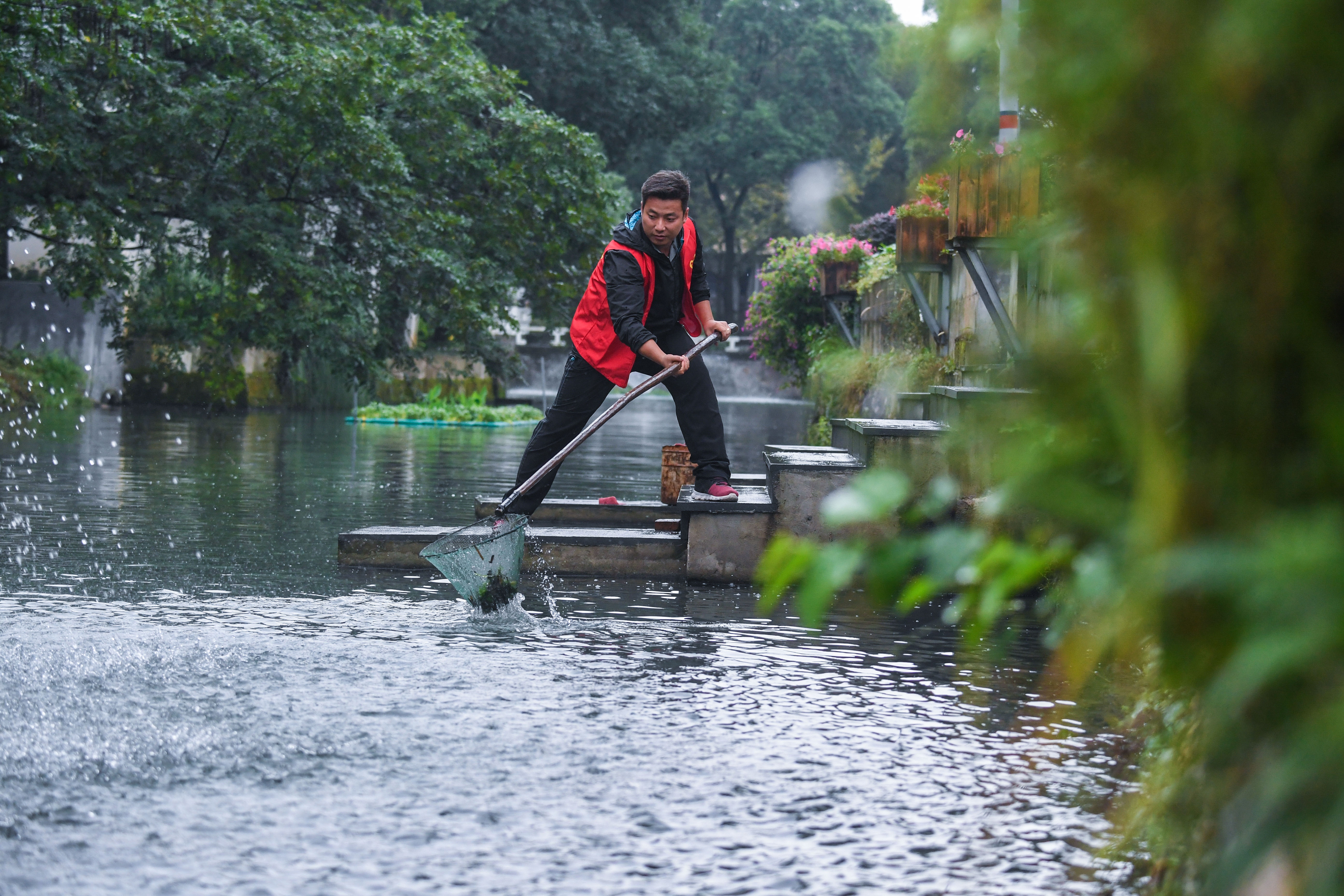BEIJING, Aug. 23 (Xinhua) - China now has over 1.2 million "river chiefs," or stewards assigned for each waterway to tackle water pollution, according to a report.

River chief Wang Jia cleans a river at Zhushan Village in Changxing County, east China's Zhejiang Province. (File photo: Xinhua)
The report on the enforcement of the water pollution prevention and control law was submitted Friday to the ongoing bimonthly session of the Standing Committee of the National People's Congress (NPC), China's top legislature, for deliberation.
The law, which was revised in June 2017, stipulated a "river chief" system at the provincial, city, county and village levels in the country, with leading officials assuming responsibility for addressing water pollution, including resource protection, waterline management, pollution prevention and control, and ecological restoration.
A total of 31 provincial-level regions have finished setting up the system, said the report.
The report also identified some major problems of the system. Clear legal liabilities and a sound appraisal mechanism are still lacking for the river chiefs.
The river chiefs generally lack mandatory measures to make relevant authorities perform duties and the chiefs' own abilities to fulfill their roles are also insufficient, according to the report.
The report called on local legislatures to formulate specific regulations concerning the river chief system to ensure effective implementation of the law.
Lawmakers should actively participate in pollution prevention and control work, acquaint themselves with the implementation progress of the law and make people's wishes and suggestions heard, said the report.
As the top priority of the NPC Standing Committee's supervision work in 2019, the inspection of the enforcement of the law was launched in late March, and saw four teams of lawmakers sent to eight provinces for inspection.
The inspection teams held 27 symposiums to hear reports by local governments and authorities, as well as to talk with local lawmakers and law enforcers, experts and scholars, enterprises and farmers.
Chinese lawmakers will deliberate the enforcement report in panel discussions on Saturday. A joint inquiry meeting on the report will also be held on Sunday.
The five-day legislative session will run until Monday.


